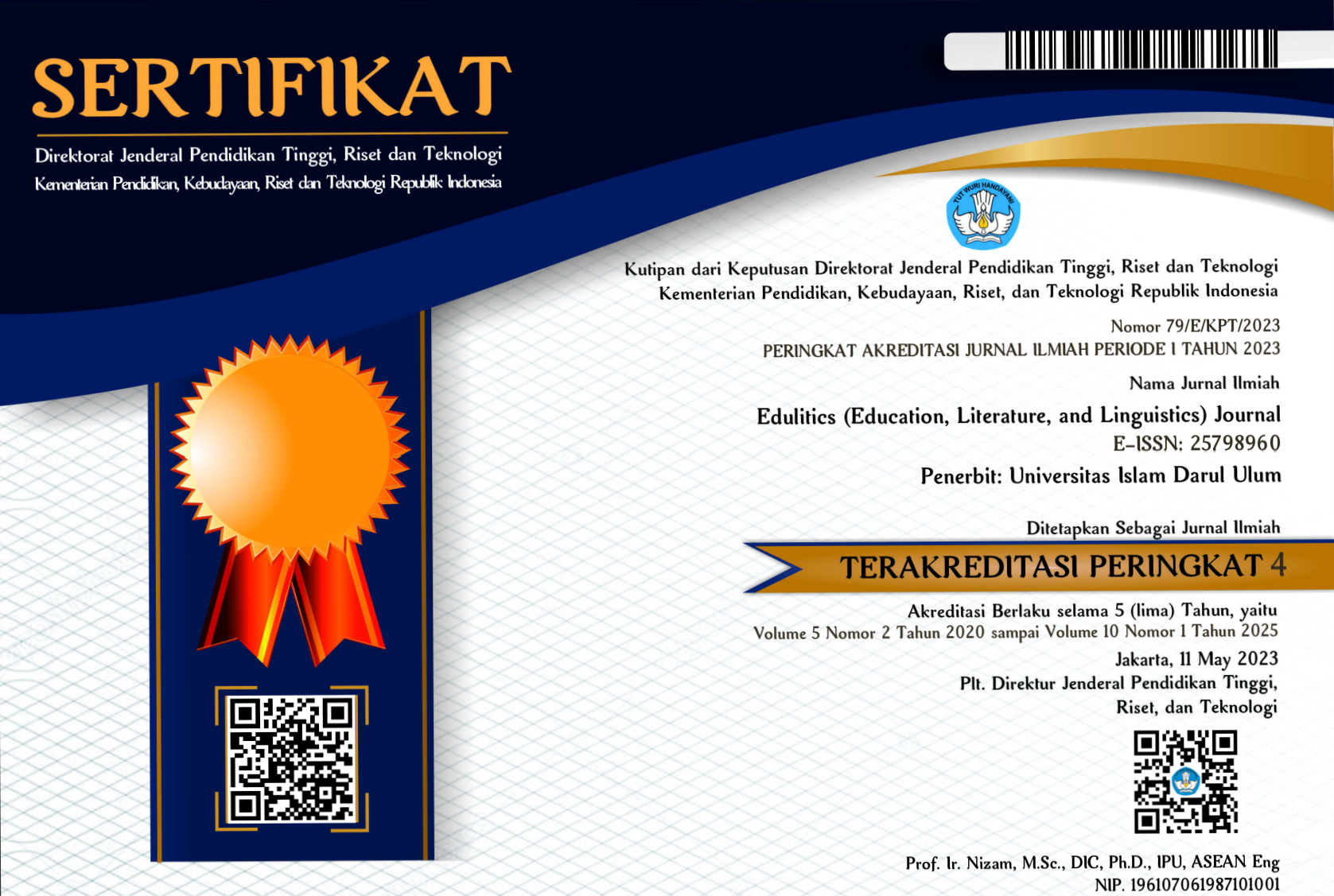GUILTY FEELING AND REDEMPTION IN THE NOVEL AND FILM THE KITE RUNNER
Abstract
The basic difference between novel and film is that each has its own medium. The medium
of film is pictures and music but the medium of novel is language. Although it is a different media but
transformation from novel to film is one of the common literary works nowadays. The best seller
novel or a famous novel usually will be adapted into a film. This research aims to describe and
compare the novel and film The Kite Runner. The analysis only focuses on the guilty feeling and the
redemption described in the novel, the guilty feeling and redemption portrayed in the film and how the
novel is adapted into the film. The research is descriptive and qualitative research. The research
objects are character of Amir, Baba and Sanaubar. In this research, the use of intertextuality of
Riffaterre theory is supported by the theory of psychological in the concept of feeling guilty and
redemption. The concepts are used to describe how the guilty feeling is. The result of the research are
formulated as follows 1). In the novel, Amir is actually has the guilty feeling and redemption to Baba
and Hassan, Baba has guilty feeling and redemption to Amir, Hassan and Ali, and Sanaubar has the
guilty feeling and redemption to Hassan. 2). In the film, the characters who have the guilty feeling
and redemption are only Amir and Baba, because Sanaubar is not portrayed at all. 3)Since this
research is only described about the dialogue of the film, so it can conclude that the novel is well
adapted into the film. The novel and the film have the same theme and same idea. So there is no
conversion from novel as the hipogram to the film as the transformation. About The expansion is
happened from novel to the film because there is no character as Sanaubar (Hassan’s mother)
portrayed in the film.
Keywords: guilty feeling, redemption, film, adaptation, intertextuality
Downloads
Authors retain copyright and grant the journal the right of first publication with the work simultaneously licensed under a Creative Commons Attribution-ShareAlike 4.0 International License that allows others to share the work with an acknowledgment of the work's authorship and initial publication in this journal.
Authors are able to enter into separate, additional contractual arrangements for the non-exclusive distribution of the journal's published version of the work (e.g., post it to an institutional repository or publish it in a book), with an acknowledgment of its initial publication in this journal.
Authors are permitted and encouraged to post their work online (e.g., in institutional repositories or on their website) before and during the submission process, as it can lead to productive exchanges and earlier and greater citation of published work.






_(1).png)


